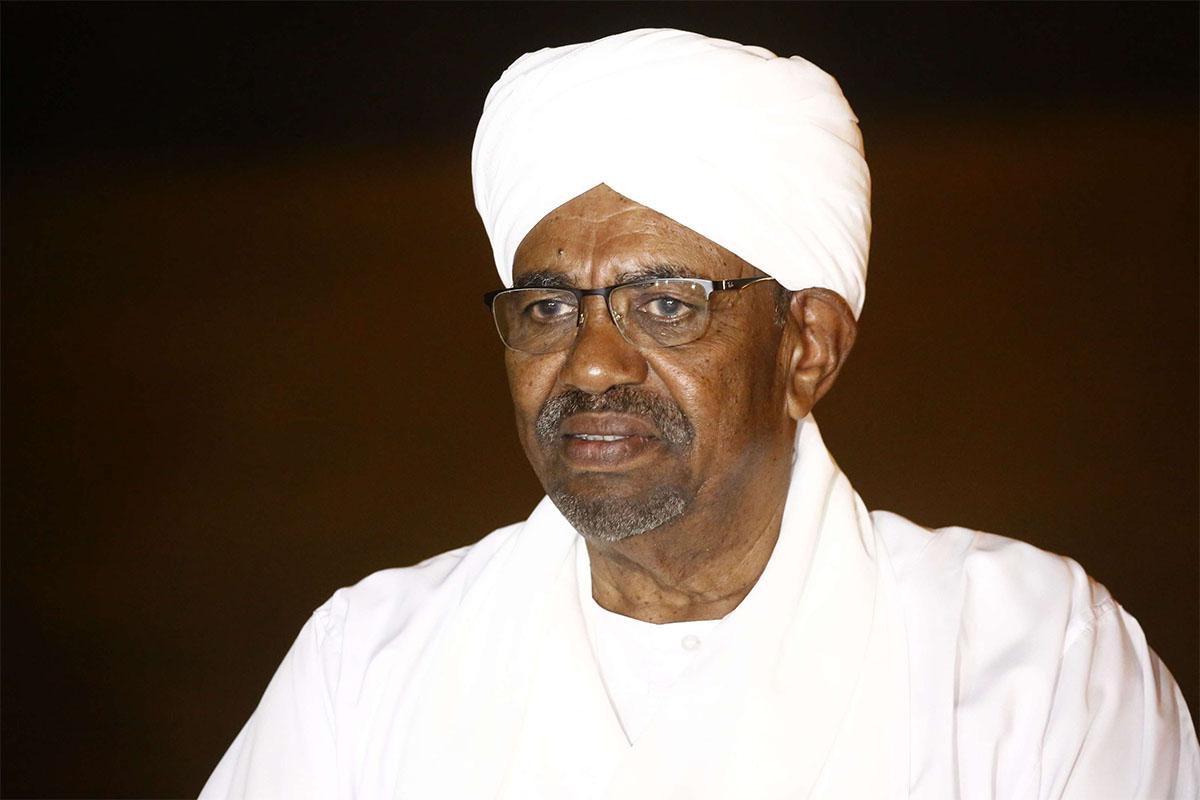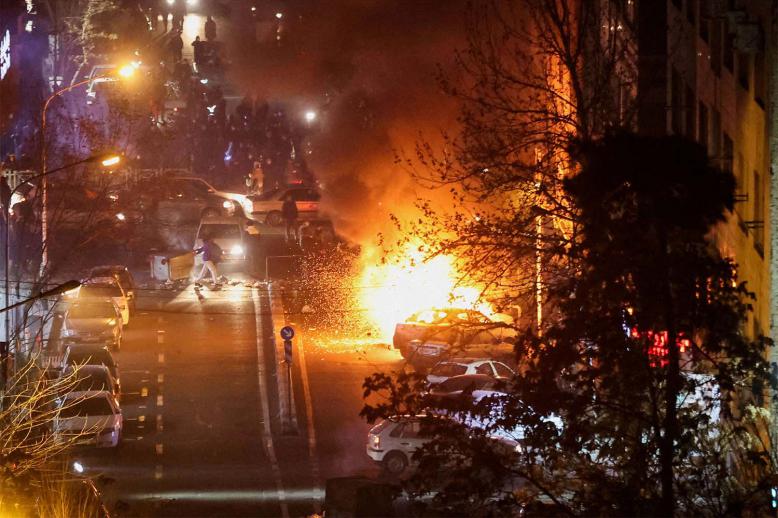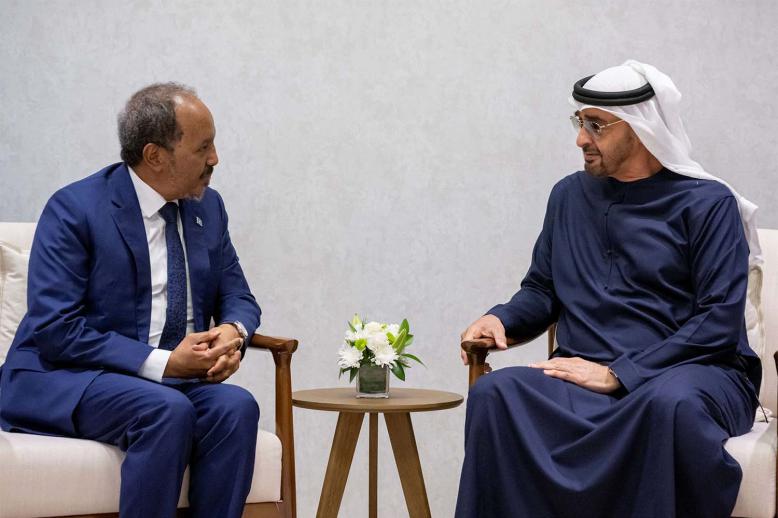Sudan protests biggest threat yet to Bashir’s rule
PARIS - Deadly protests that have grown across Sudan in recent weeks are the biggest threat to President Omar al-Bashir's iron-fisted rule since he swept to power in a 1989 coup, experts said.
Clashes have killed at least 19 since demonstrations began two weeks ago, initially in protest against bread prices tripling but rapidly evolving in to anti-government rallies.
Rights group Amnesty International has put the death toll at 37 and United Nations Secretary General Antonio Guterres has called for an investigation.
"These demonstrations and the anger that animates them are much stronger than any we've seen in recent years," said Eric Reeves, a senior fellow at Harvard University who has been tracking Sudan's politics and economy for two decades.
"The shortage of bread ... and outrageous price increases is perhaps the greatest source of immediate popular anger, and there is nothing that can alleviate the problem," Reeves said.
Protests erupted when the government raised the price of a small loaf of bread from one Sudanese pound to three (from about two to six US cents).
Several buildings and offices of Bashir's ruling National Congress Party (NCP) were torched in the initial violence.
Bashir, wanted for genocide by the Hague-based International Criminal Court over a conflict in Darfur, came to power in a coup backed by Islamists that toppled prime minister Sadiq al-Madhi and his democratically elected government.
Since then the former military general has ruled the African country with a tight grasp, using the feared National Intelligence and Security Service (NISS) to curb dissent.
NISS agents regularly arrest opposition leaders, activists and journalists who voice anti-regime opinions.
A battle with fate
Short of time to save his sinking economy, Bashir boarded a Russian jet on Dec. 17 and became the first Arab leader to visit the capital of war-torn Syria since 2011, renewing what has been seen as a push for the financial help he needs to survive.
During his trip to Damascus, Bashir was courting the Russians by helping rehabilitate their ally Bashar al-Assad after Syria's civil war in order to win financial support or play them off against the US, analysts said.
Bashir - who is an Islamist - has also sought favour with Gulf states including Saudi Arabia and the United Arab Emirates, cutting ties with Iran in 2016 and contributing troops to the Saudi-led coalition in Yemen, even while maintaining close relations with two of their regional rivals, Qatar and Turkey.
"The confusion in Sudanese foreign policy and the shift from one alliance to another is caused by the severe economic crisis in the country and President al-Bashir wants to obtain quick economic aid," said Faisal Mohamed Saleh, a journalist and political analyst in Khartoum.
Those economic problems, at the root of discontent that has simmered for years, accelerated after Sudan lost three-quarters of its oil production when the south of the country seceded in 2011.
In the eyes of protesters, the economic troubles are deeply entwined with corruption and mismanagement in the political elite and the ruling NCP, said Amjed Farid Eltayeb, an activist and spokesman for the Sudan Change Now movement.
"The NCP for the last 30 years have directed most of the national budget to the security apparatus, to the militias, and they cut all the funding of the social services, education, health," he said.
"So those people who are now in the streets have no social protection nets, they are alone in a battle with fate ... they have nothing to lose."
Dilapidated economy
Bashir, 75, took control at the height of a brutal north-south civil war that only ended in 2005.
Separate conflicts between Sudanese forces and rebels in Darfur, Blue Nile and South Kordofan states have also killed hundreds of thousands of people and displaced millions.
Analysts say these conflicts and a failure to boost agriculture in a country once renowned as a major bread producer have left Sudan's economy in a shambles, despite Washington lifting a two-decade trade embargo in 2017.
Secession by the south - which took three quarters of Sudan's oil reserves - has seen Khartoum experience an acute foreign exchange shortage.
Inflation has soared to 70 percent while shortages of bread and fuel have hit the capital and other cities.
"The economy has been collapsing for almost a decade ... but the regime functions as a kleptocracy and maintains power only through national budgets that are wildly skewed to military and security service expenses," said Reeves.
"I think the anger we've seen will not dissipate."
The ongoing protests are more widespread than those in January 2018 and September 2013.
They began first in outlying towns and cities, which had been left with a particularly acute shortage of wheat and flour, after supplies were diverted to Khartoum.
But despite the attempts to stockpile in the capital, the protests still spread there.
"The government and the ruling party were caught by surprise when protests erupted outside Khartoum," said Khalid Tijani, editor of economic weekly Elaff.
"It just showed the ruling NCP how isolated it is."
After three days without major demonstrations, the opposition and activists have called for further protests after prayers this Friday.
Uncertain future
Opposition parties are emasculated, and the protests so far are leaderless, with demonstrators coalescing in individual towns and neighbourhoods, and circumventing blocks on social media to share information on the web.
Chanting the line made famous in the Arab Spring protests of 2011 - "The people want the fall of the regime" - they have continued to rally despite security forces using live ammunition, tear gas, and stun grenades to disperse them.
The protests are the biggest challenge Bashir has faced, according to Tijani.
"The demonstrations have weakened his position," he said. "President Bashir was about to get constitutional amendments to permit him to run for the presidency again in 2020, but he will now have to reconsider that."
Reeves said even middle and lower ranking army officers are "generally appalled" at the country's economic and political situation.
"Some openly side with the demonstrators," he said.
About 22 political groups close to the government have asked for Bashir to step down.
Although a change of regime is still unlikely in the immediate future, a European diplomat said Bashir will now be under permanent pressure.
"The decisive factor will be the attitude of the security apparatus, especially the army," the diplomat said on condition of anonymity.
"If the repression becomes too harsh, the army won't allow it and that's why the current movement of protests is potentially momentous."
Bashir and his government have no answers to Sudan's economic problems, said Reeves.
"He faces open and growing popular opposition ... all this makes Bashir's future highly uncertain," he said.
But Bashir shows no sign of stepping aside. Members of Khartoum's parliament, which is dominated by the NCP, proposed a constitutional amendment last month to extend term limits that would have required Bashir to step down in 2020.
Since the demonstrations began, Bashir has appeared largely unperturbed, tempering his talk of conspiracies against Sudan with pledges of economic reform, calls for restraint and the announcement of a fact-finding committee, steps dismissed by protesters as symbolic.
"We are committed to holding free and fair elections in 2020, and we ask that all political powers prepare to participate," Bashir said on Monday.






